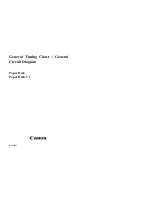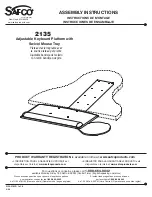
Thermo Scientific AquaSensors
™
AnalogPlus
™
Differential pH Sensor User Guide
24
4.
pH Sensor Maintenance
4.1.
Cleaning the pH Sensor
4.1.1.
In order to maintain an accurate measurement value, the sensor will need occasional cleaning and
maintenance. The maintenance interval will be dictated by the process in which it is installed. The
harsher the process, the more often the sensor will require maintenance. Regular maintenance will yield
a longer sensor life.
4.1.2.
The sensor cleaning procedure is as follows:
4.1.2.1.
Remove sensor from service and rinse or spray it with warm water to remove heavy deposits.
4.1.2.2.
Soak the sensor in a container of hot detergent water for one hour. Do not use detergents that
contain oily skin softeners like aloe or lanolin that can coat the glass electrode. Alconox
®
and
Dawn™ dishwashing liquid work well.
4.1.2.3.
Use a soft-bristled brush, such as a soft toothbrush, and hot detergent water to scrub the entire
electrode end of the sensor, being careful not to scratch or break the glass electrode.
4.1.2.4.
Rinse the electrode end with clean warm water.
4.1.2.5.
If deposits are still present on the glass electrode repeat the cleaning procedure. In the case of
lime or other mineral deposits a weak solution (about 0.1 M) of hydrochloric acid may be used. In
some cases, a dilute solution (about 10:1) of water and chlorine bleach or a solution of water and
EDTA may also work. Stubborn oil or grease deposits may require cleaning with a solvent such as
acetone or alcohol. Protein deposits may be cleaned with a pepsin-based cleaning solution.
Bacterial or mold growth may be removed with dilute chlorine bleach.
Caution:
Ensure that dangerous chemical reactions will not occur between process
deposits and cleaning solutions. Compounds of cyanide and hydrochloric acid will react
and pose health risks. Cyanide is often used in electroplating and in gold refining. If in
doubt about potential chemical reactions, check with a chemist before cleaning.
4.1.3.
Before returning the sensor to service, allow it to soak in water or buffer at ambient temperature for
about an hour to stabilize the pH electrode and the salt bridge.
4.1.4.
After cleaning the sensor, calibrate sensor per instructions in the controller manual.
4.1.5.
Reinstall sensor in process.










































